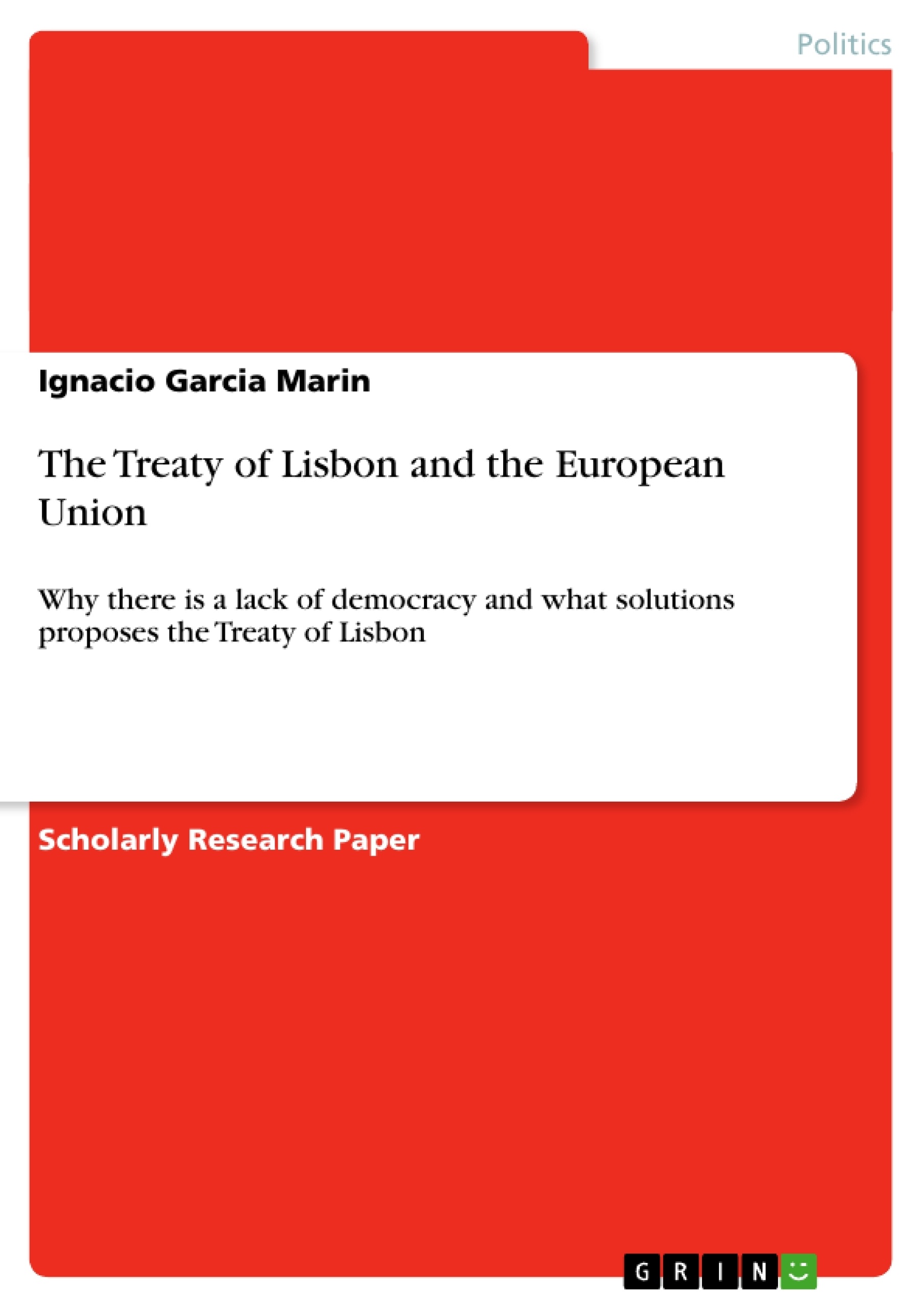Excerpt
Introduction
Since the Treaties of Rome in 1957, with the official birth of today's European Union, the controversy about the role of citizens and institutions have been recurrent. In contrast with other cases of political integration, like Italy and Germany during XIX century[1], where citizens and cultural movements supported and participated actively, in the case of the EU we cannot find considerable popular activism. In fact, it is more easy see skepticism or misgivings, and usually the political elites try to convince us about the benefits of an integrated Europe. One reason could be that the European integration has been made many times without the people and really they do not know what exactly is this Union.
The idea of an integrated Europe was considered in their origins as a solution for stop the recurrent European wars and an attempt to create a political block capable to rebuild western Europe. However, this project has always been led by European leaders, with evident lack of democracy and reduced role for citizens. For example, the powers of the European Parliament have been historically very limited and the importance of the European Commission is still far from being a “European Government”.
Thus, many authors point out that there is a democratic deficit [2] in the functioning of the European Union, where the Parliament is the only institution with democratic legitimacy[3], but with a weak authority.
Theoretically, the Treaty of Lisbon was an opportunity to reduce this lack of legitimacy with some innovations, as for example the citizen petition or more co-decision between the European Parliament and Council of the European Union. However, the European guidelines are still marked by Heads of State and Ministers, where today Angela Merkel and Nicolas Sarkozy share great part of the political power in Europe[4].
Then, the question is clear: there is a democratic deficit, but, is the Treaty of Lisbon adequate to give more democratic legitimacy to the European Union?
[...]
[1] I know that the Italian and German integration have many differences with the European integration, but in a certain way they have some similarities as examples of political integration of some countries to create a bigger political unit.
[2] I am not going to discuss the meaning of “democratic deficit”, but current literature keeps a controversy about it. I only want to say that there are different points of view about how to create a source of legitimation. Milev indicates three types of legitimacy depending of the type of integration: popular sovereignty at state and union level of governance and communitarism; national sovereignty and communitarian principle; and economic efficiency (2004:13).
[3] M. Milev. “A democratic deficit in the European Union (2004: 23)
[4] I understand that they have been elected by democratic turnouts in their countries, but they were elected by German and French citizens, not by whole European citizens.
- Quote paper
- Lic. Soc. Ignacio Garcia Marin (Author), 2011, The Treaty of Lisbon and the European Union , Munich, GRIN Verlag, https://www.grin.com/document/182026
Publish now - it's free






















Comments